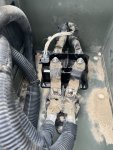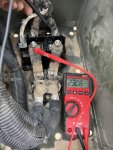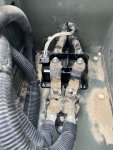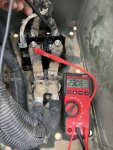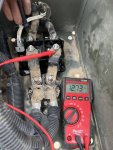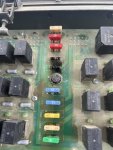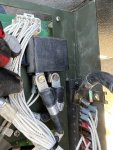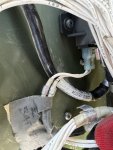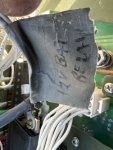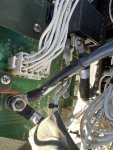abfisher1798
Active member
- 190
- 88
- 28
- Location
- Blythe, California
The original relays finally quit so I replaced with the newer model, single box relax setup. We turn battery and master switch to on and dash powers up as usual. Push the start button and one of two things happen:
1. Everything goes dark, like a blown fuse. Cycle the battery disconnect switch and after a few minutes power is restored, but issue remains.
2. Relays at battery disconnect start cycling on and off at a regular pace; click-power on, click-power off, and so on.
I’ll post some pictures. I’m sure someone has ran into this before.
1. Everything goes dark, like a blown fuse. Cycle the battery disconnect switch and after a few minutes power is restored, but issue remains.
2. Relays at battery disconnect start cycling on and off at a regular pace; click-power on, click-power off, and so on.
I’ll post some pictures. I’m sure someone has ran into this before.
Attachments
-
89.5 KB Views: 23
-
98.9 KB Views: 23
-
89.5 KB Views: 22
-
98.9 KB Views: 21
-
93.8 KB Views: 22



